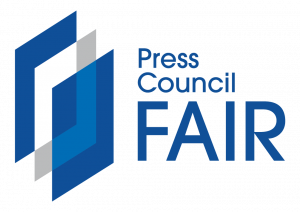 In South Africa, the deployment of fibre networks is critically dependent on the acquisition of wayleaves, which are permissions granted by municipalities to trench roads and public spaces for infrastructure as well as to provide aerial fibre.
In South Africa, the deployment of fibre networks is critically dependent on the acquisition of wayleaves, which are permissions granted by municipalities to trench roads and public spaces for infrastructure as well as to provide aerial fibre.
Unlike a centralised government-issued system, however, these permissions are controlled by individual municipalities, leading to a range of challenges and inconsistencies.
It’s well known that South African municipalities are grappling with severe financial difficulties. Traditionally, they have relied heavily on revenue from electricity sales. However, with the widespread adoption of solar power by paying customers and frequent load shedding reducing electricity usage, municipalities are now seeking alternative revenue streams. One such stream is the sale of wayleaves to wireless internet service providers (Wisps) and fibre network operators.
Unfortunately, each municipality has its own pricing and processing system for wayleaves. In some areas, the cost of obtaining a wayleave has been pushed so high that laying fibre has become economically unfeasible. This disparity in costs, combined with various bureaucratic processes, creates a significant barrier to uniform connectivity expansion.
The South African government has expressed a commitment to ensuring that no one is left behind in the drive for universal connectivity. The SAConnect initiative is central to this effort, with many small and medium-sized enterprises receiving grants to connect large rural and regional areas wirelessly and with fibre. These SMEs are at the forefront of connecting underserved regions.
However, the path forward is fraught with challenges. Wisps need wireless operating licences, town planning and environmental impact studies to approve tower construction. Although logistically manageable if the land is zoned for communications infrastructure, the process is still complex and costly.
Price wars
Historically, many Wisps focused on providing wireless services only, but over time they have become open-access partners to large fibre service providers. The industry has seen a shift where customers now expect free installation and routers, intensifying price wars. This has squeezed profit margins to as low as R50 per month per client, making it hard for Wisps to sustain their operations. Consequently, rolling out their own fibre infrastructure has become a more viable option for many SME Wisps.
To deploy their own fibre, SMEs need to create their own networks, which involves applying for municipal wayleaves. The costs associated with wayleaves can range from around R8 000 to several hundreds of thousands of rand. Some municipalities even require non-refundable deposits of hundreds of thousands of rands, with no guarantee of approval. Additionally, arbitrary fees such as annual maintenance charges further burden SMEs, even though municipalities perform no maintenance once the fibre is laid.
Read: South Africa’s business fibre market is growing fast
The situation is exacerbated by the monopolistic practices of large fibre providers. There is anecdotal evidence suggesting that these providers manipulate municipal wayleave processes to their advantage, often with political interference.
For instance, an SME Wisp that recently applied for an aerial wayleave was refused and was asked for a bank guarantee of R800 000 for a trench-only wayleave; aerial was declined. A large fibre operator entered the municipality and secured their own aerial wayleaves without issues.

At another municipality, an SME Wisp was rolling out fibre when wayleave acquisition was not an issue, until the big players moved in and all his future wayleaves were declined. Meanwhile, the large players were granted wayleaves for the duration of their fibre roll-out projects.
Such anticompetitive behaviour undermines SMEs and contradicts the government’s goal of universal connectivity. The lack of a standardised national regulatory framework for wayleaves allows larger operators to dominate the market, sidelining smaller competitors and stifling innovation.
South Africa’s cellular data coverage is extensive, but the high cost of such data renders it unaffordable for many, especially in rural areas. This has perpetuated the digital divide, leaving a significant portion of the population unconnected.
Read next: State’s latest free data plan panned
Easing the regulatory and financial burdens on SME Wisps would enhance their ability to provide affordable wireless and fibre connectivity, benefiting everyone. Connectivity should be driven by market needs rather than manipulated by powerful operators. However, the entrenched corruption, ineffective processes and lack of transparency in municipal dealings ensure that large operators continue to dominate, to the detriment of SMEs and the wider population.
As South Africa celebrates 30 years of democracy, it is imperative to reform the systems that have perpetuated our digital divide. Addressing these issues would not only promote fair competition but also align with the nation’s vision of inclusive connectivity, truly leaving no one behind.
- The author, Paul Colmer, is executive committee member at the Wireless Access Provider’s Association, an industry body

